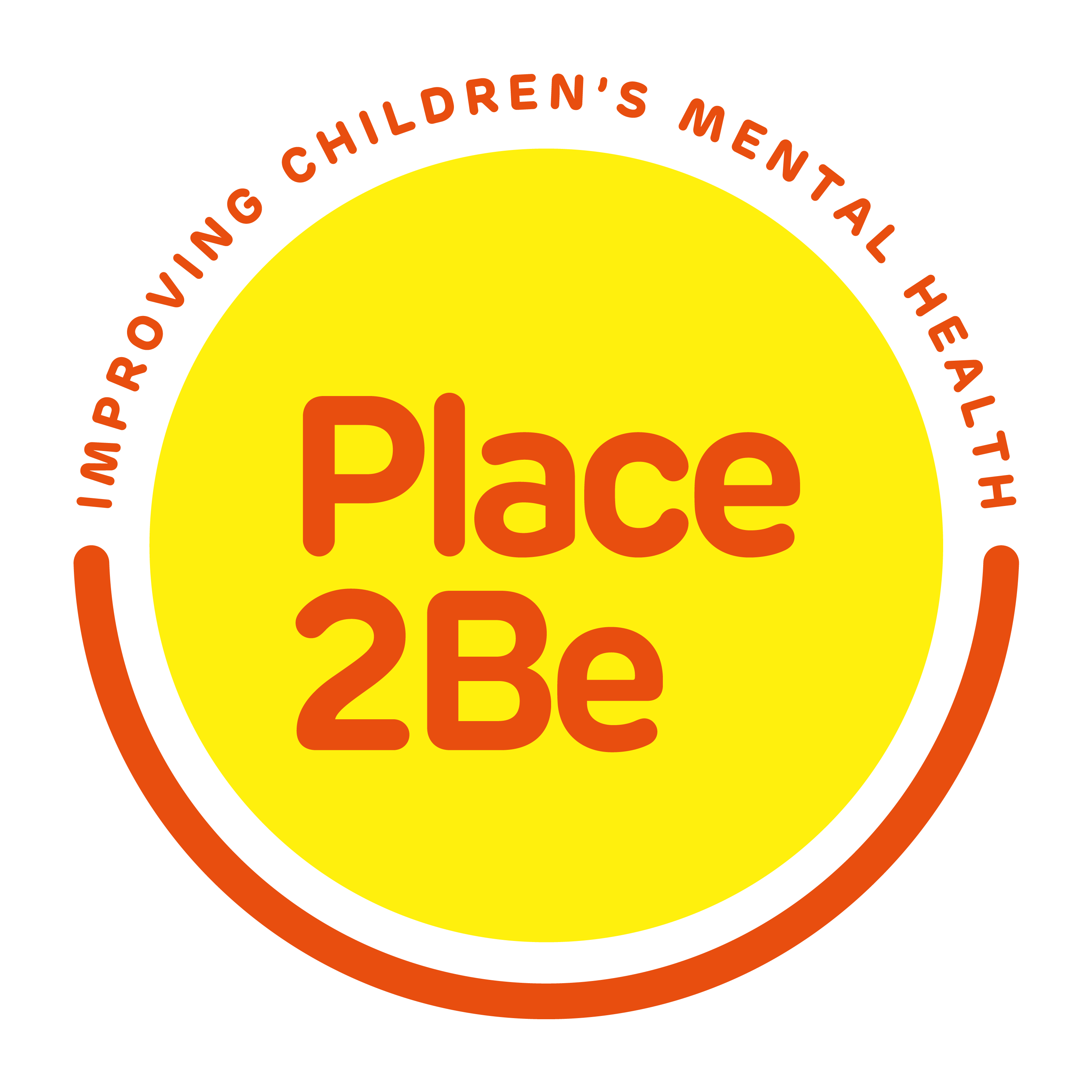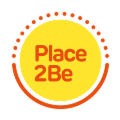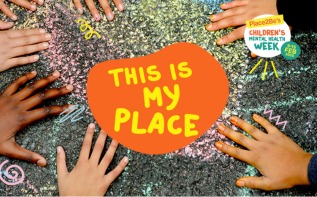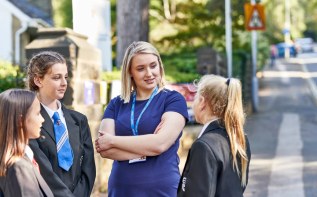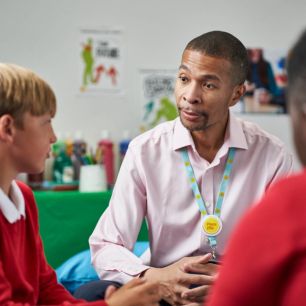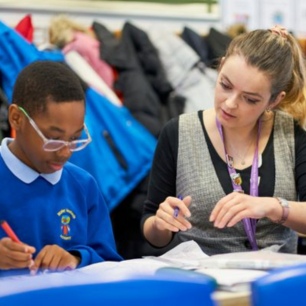Our research projects
Our research projects
Our research projects help us advance our understanding of children and young people's mental health.
At Place2Be, we have a dedicated Research and Evaluation team who routinely monitor and evaluate our support services. The team also collaborates with many like-minded organisations and research institutions across the world. Our research aims to advance our understanding of children’s and young people’s mental health and the ways in which they can be best supported.
We use our research findings to:
- shape our therapeutic approach
- help improve the support we provide to children and young people in schools
- engage politicians with our work and help inform public policy in the UK.
If you would like more information about our research projects, please get in touch with our Research and Evaluation team by emailing researchteam@place2be.org.uk.
Research reports and publications
Here we present key findings and reports from our research projects, including our peer-reviewed journal publications.
From a child who IS a problem to a child who HAS a problem
In this research, we explored the relationship between mental health and school exclusion for children and young people receiving one-to-one counselling with Place2Be. We found that children and young people who had experienced fixed-term exclusions had significantly less exclusions in the academic year counselling occurred.
Purpose
The purpose of this research was to explore the relationship between mental health and school suspensions (previously fixed-term exclusions) for children and young people receiving one-to-one counselling.
What is a school suspension?
A school suspension is when a child or young person is temporarily removed from their school for a fixed period of time.
What we did
We analysed our data from a sample of UK children and young people aged between four and 16 who received school-based one-to-one counselling with Place2Be.
We looked at the number of school exclusions in the academic year before counselling and the academic year in which children and young people attended counselling. Mental health of these children and young people was also compared before and after counselling using the Strengths and Difficulties Questionnaire (SDQ).
What is the SDQ?
The SDQ is a behavioural screening questionnaire used to assess the mental health of children and young people. The SDQ can be completed by the teacher, parent, or the young person themselves (age 11-17 years).
What we found
We found that children and young people who had previously experienced school suspensions were facing greater adversity and had more complex and severe mental health difficulties than those who had not experienced exclusion.
Following one-to-one counselling:
- there was a reduction in sessions of fixed-term exclusions for children and young people who had previously experienced school suspensions
- 74% had fewer fixed-term exclusions
- 56% did not have any subsequent exclusions in the academic year that counselling took place
- there was also improvement in mental health for these children and young people;
These findings suggest that school counselling could be a useful way to improve the mental health of children and young people at risk of school exclusion and reduce subsequent fixed-term exclusions.
In particular, the identification of poor mental health in students with conduct problems or attention and hyperactivity difficulties may alter staff perceptions and how they manage these students, i.e., fewer exclusions and more mental health support.
What is a mental health intervention?
A mental health intervention is something that's put in place to help improve someone's mental health. In this context, one-to-one counselling acts as a mental health intervention.
Read the full research paper
You can read, download and share the full "From a child who IS a problem to a child who HAS a problem" paper below. Alternatively, you can read a summary of the research paper here.
Research contributors
Our research team collaborated with two academics from the University of Cambridge for this research project. The research contributors were:
- Professor Tamsin Ford, CBE
- Sarah Golden
- Dr Kati Toth
- Lauren Cross.
Economic evaluation of Place2Be’s counselling service in Primary Schools
This research by Pro Bono Economics assessed the individual and societal benefits of Place2Be’s one-to-one counselling service. Their analysis showed the service generates around £8 in benefits for every £1 spent on the service.
Impact of counselling provision in primary schools on child and adolescent mental health service referral rates
Purpose
The purpose of this research project was to see if Place2Be's primary school counselling service had an effect on Children and Adolescent Mental Health Service (CAMHS) referral rates in South London.
What is CAMHS?
CAMHS, short for Children and Adolescent Mental Health Services, is an NHS service that supports children and young people who are experiencing poor mental health.
What we did
In this study, we looked at data from the National Pupil Database (NPD) and CAMHS referrals to the South London and Maudsley’s NHS Foundation Trust (SLaM). The data included 285 state primary schools in four London boroughs for the academic years 2007–2012.
What is the National Pupil Database (NPD)?
The NPD is a government database of all pupils in state schools in England. It contains information on attainment, exclusions, absences and pupil backgrounds.
During the study period, 23 of these schools had Place2Be in-school mental health services. We looked at the amount of school-level accepted CAMHS referrals for the academic year 2012/13 in schools with and without Place2Be's in-school services.
Findings
We found that some school characteristics, including poor Ofsted results and having a greater proportion of white-British pupils were related to higher CAMHS referrals. However, having Place2Be mental health services in school was not related to the number of CAMHS referrals made.
In combination with the known effectiveness of school-based counselling, this suggests that having a school-based counselling service does not lead to a flood of referrals to CAMHS but is likely to be doing well at treating mental health challenges within schools.
Read the full research paper
You can read, download and share the full research paper, "Impact of counselling provision in primary schools on child and adolescent mental health service referral rates: a longitudinal observational cohort study", below.
Research contributors
Our research team collaborated with academics from the following institutions for this research project:
- Kings College London (KCL)
- University College London (UCL)
- University of Cambridge
- National Institute for Health Research (NIHR)
- Maudsley Biomedical Research Centre (BRC).
Individual contributors to this research were:
- Sarah Golden, Head of Evaluation, Place2Be
- Dr Kati Toth, Senior Data Analyst, Place2Be
- Professor Stephen Scott CBE
- Professor Tamsin Ford, CBE, University of Cambridge
- Claire Grant, University College London (UCL)
- Dr Ruth Blackburn, University College London (UCL)
- Duncan Harding
- Johnny Downs, King's College London (KCL).
A UK School-based mental health service response to the COVID-19 pandemic
This work looked at how we changed how we work in schools in response to the COVID-19 pandemic. The report demonstrates how Place2Be successfully maintained beneficial support for children and young people during the pandemic using creative and modified means.
What we looked at
This report examined how we changed the way we work in schools during the COVID-19 pandemic and how effective these changes were.
What we did
Place2Be changed its model of working during COVID-19 pandemic, having to consider policy, practice, ethical, guidance and training implications. This report set out what changes were made during school closures due to lockdown (e.g. devising and expanding digital modes of therapeutic support) and numbers of children and young people, parents/carers, and school staff who were still supported during this time.
What we found
Over the lockdown period of school closure Place2Be supported over 4,000 children and young people with over 10000 direct check-in sessions and over 20,000 check-in sessions with parents/carers. This report demonstrated how Place2Be successfully continued to support children and young people during the pandemic using creative and modified means.
Read the research paper
Research contributors
Members of our internal research team conducted this research, including:
- Dr Niki Cooper
- Jemma White
- Dr Kati Toth
- Dr Margaret Murphy
- Nikhil Naag.
Longer-term effects of school-based counselling in UK primary schools
This research examined the longer-term effectiveness of one-to-one counselling in our UK primary schools. Improvements in mental health were found following one-to-one counselling, and, importantly, improvements continued over the two-year follow-up period.
Purpose
Before we did this research, the lasting impact of early intervention counselling services on the mental health of children and young people was unknown. The purpose of this research was to find out what the long-term effects of Place2Be’s one-to-one counselling delivered to children in UK primary schools were.
What we did
Working with researchers at the University of Exeter and the University of Cambridge, in this research we assessed the longer-term impact of our school-based service.
We looked at data from a sample of 700 children who received school-based counselling in the UK in the 2015/16 academic year delivered by Place2Be. Mental health was assessed before, immediately after, and approximately one year after children had received counselling.
We measured mental health using the Strengths and Difficulties Questionnaire (SDQ), which teachers and parents completed.
What is the Strengths and Difficulties Questionnaire (SDQ)?
The SDQ is a questionnaire used to assess the mental health of children aged 3–16 years. Sometimes, a teacher or parent may complete an SDQ for the child or young person.
Findings
We found that following one-to-one counselling children’s mental health improved according to both teachers’ and parents’ reports. Importantly, these improvements were maintained one year later.
In a further analysis, we compared this group to a group of children who had not received Place2Be counselling. This analysis suggested that mental health improvement in Place2Be’s children was not only greater, but was also estimated to continue over two years.
Read the full research paper
You can read, download and share the full research paper, "Longer-term effects of school-based counselling in UK primary schools", below.
Alternatively, you can read the research paper online here.
Research contributors
Our research team collaborated with academics from the University of Cambridge and the University of Exeter Medical School for this research project. Find out more about the contributors to "Longer-term effects of school-based counselling in UK primary schools" below.
Individual contributors to this research were:
- Jemma White
- Dr Kati Toth
- Sarah Golden
- Professor Tamsin Ford, CBE
- G. J. Melendez-Torres
- Katie Finning.
What issues bring primary school children to counselling?
This research measured the number, severity and types of issues recorded by counsellors in primary school children referred to Place2Be. We found that these children experienced various difficulties, including anxiety, low self-esteem and family tensions.
Purpose
We wanted to examine the types and severity of mental health and wellbeing difficulties that primary school children have when they start counselling with Place2Be.
What we did
We collected data from our counsellors’ assessments of 8,893 children referred to Place2Be in 291 UK primary schools over three years. Our counsellors used a list of 21 possible issues relating to children’s mental health and wellbeing, including:
- anxiety
- bullying
- eating difficulties
- sleeping difficulties
- family tensions.
Counsellors rated the severity of issues which were present for each child.
Findings
We found that most children referred to counselling had more than one presenting issue at assessment, and 55% had at least one severe presenting issue.
The most common issues for children were:
- generalised anxiety
- low self-esteem
- family tensions
- mood swings.
Girls were more likely to present with all types of anxiety and family tensions, while attention problems and mood swings were more common in boys.
Our findings show that children referred for counselling in primary schools often present with multiple difficulties and these are often severe. This indicates the need for systematic and detailed assessments to pick up on the child’s difficulties and any issues which may be surrounding them, such as tensions at home. Good links with external agencies are also essential to ensure children receive the right support.
Read the full research paper
You can read, download and share the full research paper, "Longer-term effects of school-based counselling in UK primary schools: A service evaluation of presenting issues across 291 schools working with Place2Be", below.
Alternatively, you can read a summary of the research paper here.
Research contributors
Our research team worked on this research project with academics from the University of Exeter Medical School and the University of Cambridge.
Individual contributors to this research were:
- Dr Kati Toth
- Sarah Golden
- Professor Tamsin Ford, CBE
- Dr Lamiya Samad
- Patrick Johnson
- Rachel Hayes.
The Place2Be: Measuring the effectiveness of a primary school-based therapeutic intervention in England and Scotland
This research assessed whether Place2Be's individual and group intervention model positively influences children's social and emotional wellbeing. Teachers and parents reported that children had fewer difficulties post-intervention compared to pre-intervention.
Systematic client feedback in therapy for children with psychological difficulties
This research investigated whether using Partners for Change Outcome Management Systems (PCOMS), a system that uses behavioural health to inform treatment, changed play-based counselling outcomes for children. We found that PCOMS can improve clinical outcomes.
Purpose
The purpose of this research was to find out if using Partners for Change Outcome Management Systems (PCOMS) changed the effect of play-based counselling for children aged 7–11.
What is the Partners for Change Outcome Management System (PCOMS)?
PCOMS is a feedback tool that counsellors can use to find out how their patient is responding to counselling. It allows counsellors to further tailor sessions to their patients and seek better outcomes.
What was done
This research, led by Professor Mick Cooper at the University of Roehampton, compared the clinical outcomes of children aged 7–11 years old receiving play-based counselling with and without the use of PCOMS. Effectiveness was measured using the Strengths and Difficulties Questionnaire (SDQ) completed by parents and teachers.
What is a clinical outcome?
A clinical outcome is a change in someone's health or quality of life that results from them receiving medical treatment.
What is the Strengths and Difficulties Questionnaire (SDQ)?
The SDQ is a questionnaire used to assess the mental health of children aged 3–16 years. Sometimes, a teacher or parent may complete an SDQ for the child or young person.
Findings
We found that PCOMS improves clinical outcomes, ensuring certain conditions were met. These conditions included making sure pupils attended school and counsellors were committed to using PCOMS.
Read the full research paper
You can read, download and share the full research paper, "Systematic client feedback in therapy for children with psychological difficulties: pilot cluster randomised controlled trial", below.
Alternatively, you can read a summary of the research paper here.
Research contributors
Our research team collaborated with academics from the University of Roehampton and the developer of Better Outcomes Now for this research project.
Individual contributors to this research were:
- Professor Mick Cooper
- Barry Duncan
- Sarah Golden
- Dr Kati Toth.
The validation of the self-report strengths and difficulties questionnaire (SDQ) for use by children in the UK
This report summarises research on the effectiveness of children aged 6-10 years completing the SDQ with a trained counsellor. The findings suggest that children could complete the SDQ effectively, giving practitioners insight into children's understanding of their problems.
Purpose
We collaborated with NHS mental health teams in Lancashire and Manchester and Professor Pamela Qualter at the University of Central Lancashire to see if self-reporting could be used to assess the mental health of children under 11 years old when they completed the SDQ in interviews with a trained counsellor.
What is the Strengths and Difficulties Questionnaire (SDQ)?
The SDQ is a behavioural screening questionnaire for children aged 3–16 years used to assess the mental health of the child or young person who completes it. Sometimes, a teacher or parent may complete an SDQ for the child or young person.
What we did
The self-report SDQ was administered to 900 children aged 6–10 years via interviews with trained counsellors.
Findings
It was found that children between 6 and 10 years of age could provide meaningful SDQ data when completed via interview with a counsellor.
Read the brief report
You can read, download and share the full "The validation of the self-report Strengths and Difficulties Questionnaire for use by 6- to 10-year-old children in the UK" paper below.
Alternatively, you can read a summary of the research paper here.
Research contributors
This research was conducted by individuals from:
- University of Central Lancashire
- Preston Primary Care Mental Health Service at Lancashire Care NHS Foundation Trust (now Mental Health Liason Team at Lancashire and South Cumbria NHS Trust)
- Trafford Child and Adolescent Mental Health Service (CAMHS).
Individual contributors to this research were:
- Dr Will Curvis
- Susannah McNulty
- Professor Pamela Qualter.
In the eye of a 'perfect storm'
This article explores what support and training schools need to address pupils' and school staff's mental health needs. Highlighted is how Place2Be's support service can help fulfil that need and the importance of including mental health training in initial teacher training.
Mental Health Service Models for Young People
This POSTnote, informed by Place2Be, examines how areas in England planned to improve their Children and Young People's Mental Health Services (CYPMHS) by 2020. Plans followed the UK government's announcement of five years of extra funding in 2015.
The Effects of School Exclusion and Effective Interventions
This briefing with Forward Trust (previously RAPt) examines factors associated with school exclusions and criminal behaviour, including emotional and behavioural difficulties for some children and young people. Together, we highlight early intervention's importance in diverting young people from offending.
Ongoing research projects
We are currently working on some larger-scale projects running over several years. This includes an evaluation of our whole-school approach and an examination of the longer-term effects of Place2Be.
City Bridge longitudinal study
We're conducting a new four-year study on the effects and cost-benefits of children and young people aged 4–18 across London receiving individual counselling at Place2Be. The City of London Corporation's charitable funder, City Bridge Foundation, and the Robinson family are generously funding the study. A member of the Robinson family is one of Place2Be's Trustees.
What is a longitudinal study?
A longitudinal study is where researchers follow up with a group of people and see what changes occur over a set period of time.
Our objectives
1. Mental health and educational outcomes of children and young people who access Place2Be
Our first objective is to describe the mental health and educational outcomes of children and young people who access Place2Be in primary and secondary schools in London, compared to similar children from existing studies.
This will involve looking at the following relating to children and young people who receive counselling from Place2Be while they have counselling and two years after:
- describing what happens to their mental health
- seeing how much this mental health improvement is sustained over time
- identifying the factors that are associated with this improvement
- looking at what happens to their academic attainment and progress
- examining how longer-term outcomes, such as their academic attainment and attendance, vary in relation to mental health
- exploring if these outcomes are different compared to children with similar mental health and socio-demographics.
2. Initial mental health difficulties
Our second objective is to see whether any differences in outcomes are associated with the nature of the initial mental health difficulties and characteristics of children and young people.
3. Cost-benefits of access to individual counselling
Our third objective is to explore the cost-benefits of access to individual counselling over time. To do this, we will work with Pro-Bono Economics to assess the cost of early mental health intervention against the benefits for the individual and wider society from reduced mental health difficulties.
How we'll measure mental health
We will analyse children and young people's mental health through the Strengths and Difficulties Questionnaire (SDQ). The SDQ will be completed by:
- parents or carers
- teachers
- the young person if they are over 11 years old.
Our funders
The City of London Corporation’s charitable funder, City Bridge Foundation, is generously funding this four-year research programme. City Bridge Foundation grants over £30m annually towards charity projects that benefit Greater London.
AL Philanthropies research programme (Salford)
This research examines the impact of Place2Be's whole-school service on the school community in 20 primary schools in Salford, Greater Manchester.
The AL Philanthropies Research Programme, generously funded by AL Philanthropies (ALP), is a ground-breaking four-year research study that began in September 2022. The research aims to provide evidence of the effectiveness of whole-school mental health provision and advocate for a whole-school approach to mental health in all schools.
Objectives
- To assess the effect of Place2Be on the mental health, wellbeing and resilience of the pupils, parents/carers and school staff and how the service equips children for their future.
- To investigate the role of Place2Be in building a mentally healthy ethos in schools which reduces stigma associated with mental ill health, promotes help-seeking and supports the leadership team to achieve this.
- To examine the contribution of Place2Be to the academic outcomes in the school.
- To identify the impact of Place2Be on relationships between the school with external specialist mental health agencies.
What we are doing
20 primary schools in Salford, Greater Manchester, will benefit from having Place2Be’s whole-school service. This service provides an embedded mental health practitioner who works in the school two days a week and supports the school community through:
- one-to-one and/or group-based targeted inventions for pupils
- a drop-in counselling service available to all pupils through self-referral
- psychoeducational whole-class work and assemblies
- a support service for school staff to draw on expert advice to support children's mental wellbeing in their role
- school staff professional development including Mental Health Champions Foundation Programme and Senior Mental Health Leads Programme.
In addition, a Family Practitioner will work with the schools to provide a range of parenting support, including parent-child training, parenting advice, an online parenting course and access to Place2Be’s Parenting Smart website.
You can find out more about our whole-school service on our Mental health support in schools page.
Key findings so far
- Out of 20 schools, over 200 pupils were supported through one-to-one counselling, 1500 pupils had been supported through Place2Talk sessions and nearly 150 pupils were supported in Journey of Hope, across the 2022-2023 academic year.
- According to parents, 3 in 5 (61%) children who accessed our one-to-one counselling saw an improvement in their mental health.
- Most pupils agreed that Place2Talk helped them to feel calmer (77%), feel less worried (69%), and helped them to sort out a problem (68%). Most pupils felt that they were listened to in Place2Talk sessions (83%) and most said that they would recommend Place2Talk to a friend (83%).
- Following the completion of Place2Be's Mental Health Champions Foundation Programme, 83% of school staff said they had used or intended to use one or more new approaches from the programme.
- Nearly half of parents/carers agreed that they had done something different as a parent after speaking to the Mental Health Practitioner (49%) and got new advice they had not had before (47%).
Our summary of the research
Interim report year 2
Interim report year 3
Download our snapshot of the research Download the interim 2 year report Download the interim 3 year report
Advisory Research Projects
We act in an advisory role on several external research projects, supporting the wider research community by drawing on the expertise of our Research and Evaluation team, Clinical team and school-based practitioners.

Regulating Emotions – Strengthening Adolescent Resilience (RE-STAR)
We are working on the four-year RE-STAR programme with Professor Edmund Sonuga-Barke from Kings College London. The programme explores how young people manage and respond to emotional experiences and develops new ways to measure these responses.
Learn more about the RE-STAR programme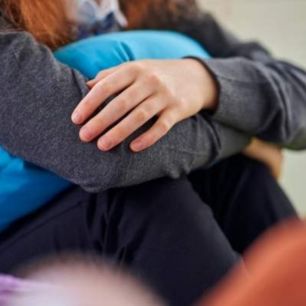
Learning Together for Mental Health
We are working with Professor Chris Bonnell (London School of Hygiene and Tropical Medicine) and Professor Russell Viner (University College London) to develop and evaluate their Learning Together for Mental Health programme in secondary schools.
Learning Together for Mental Health